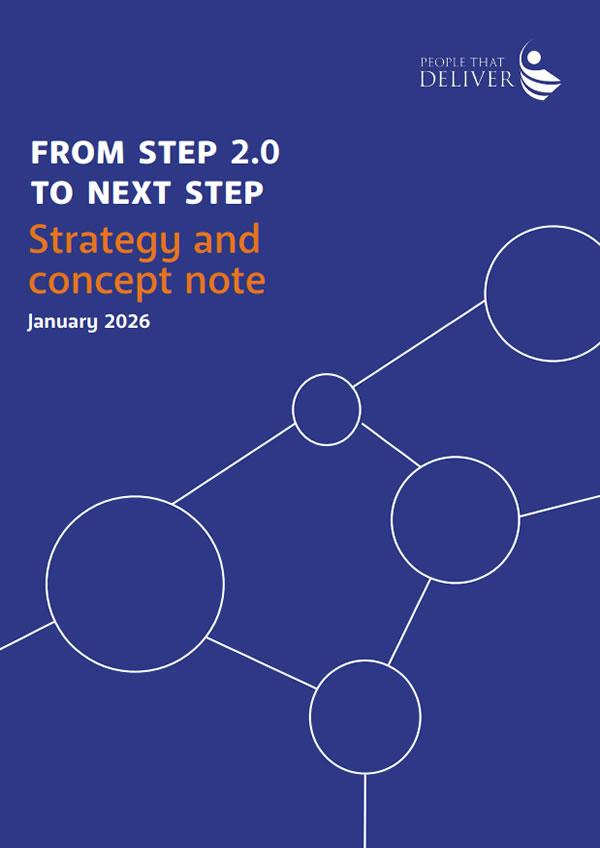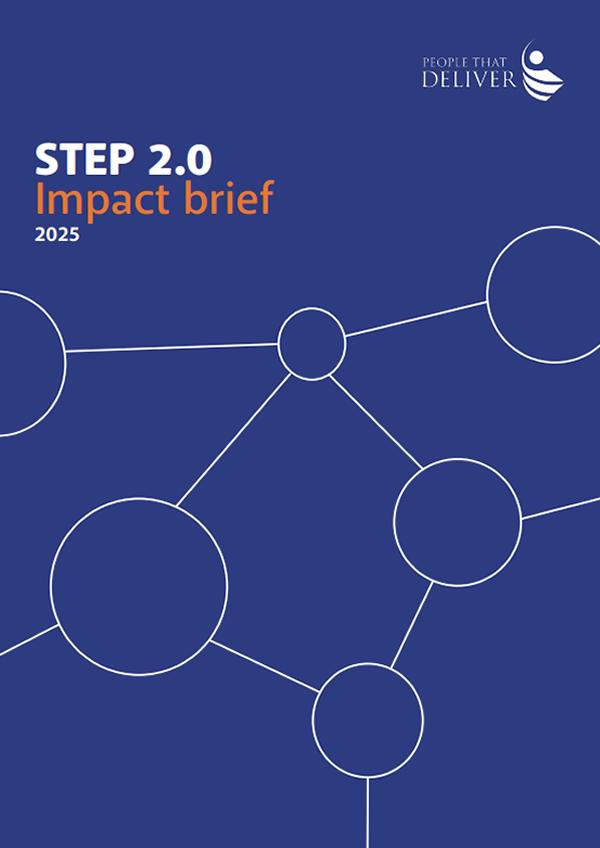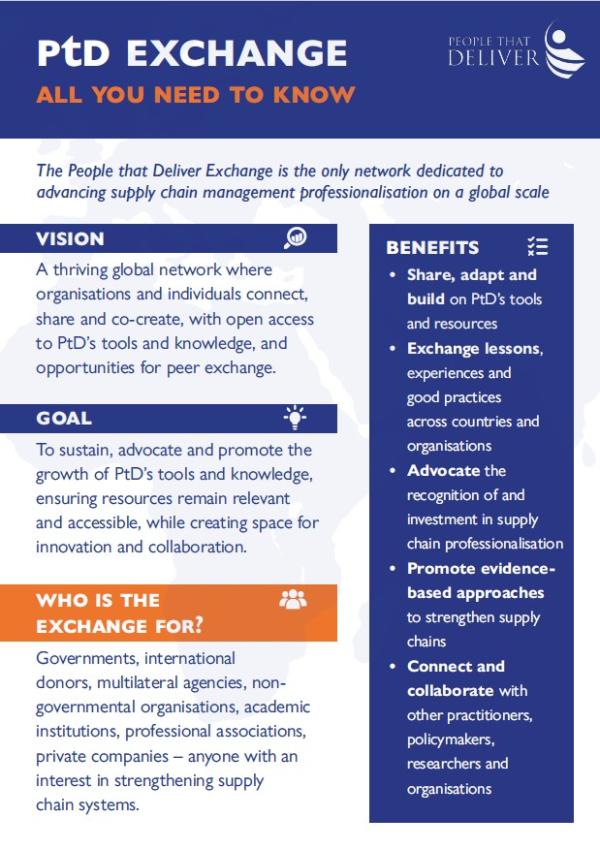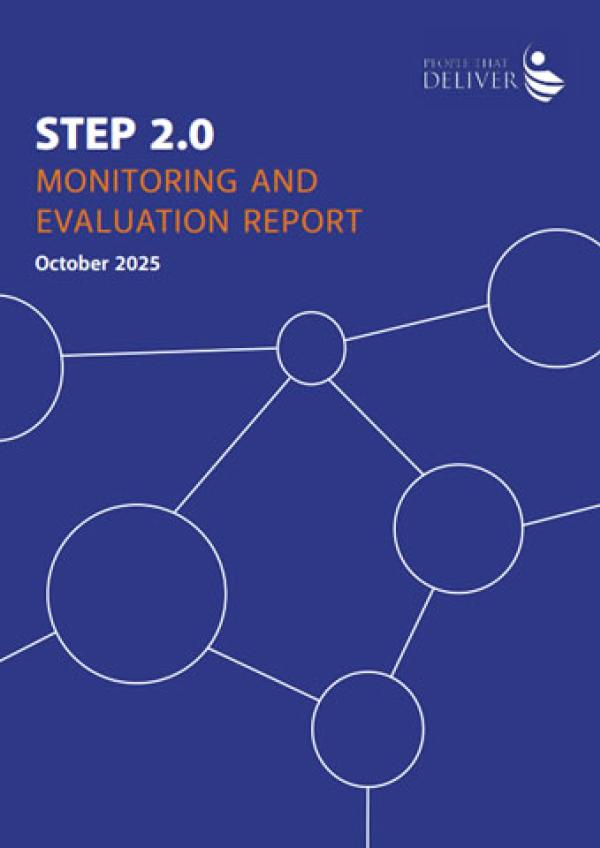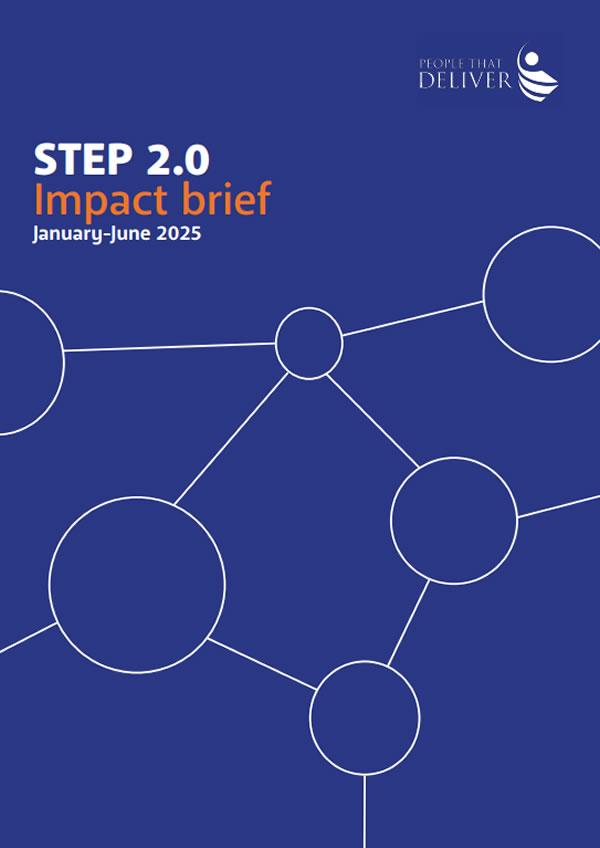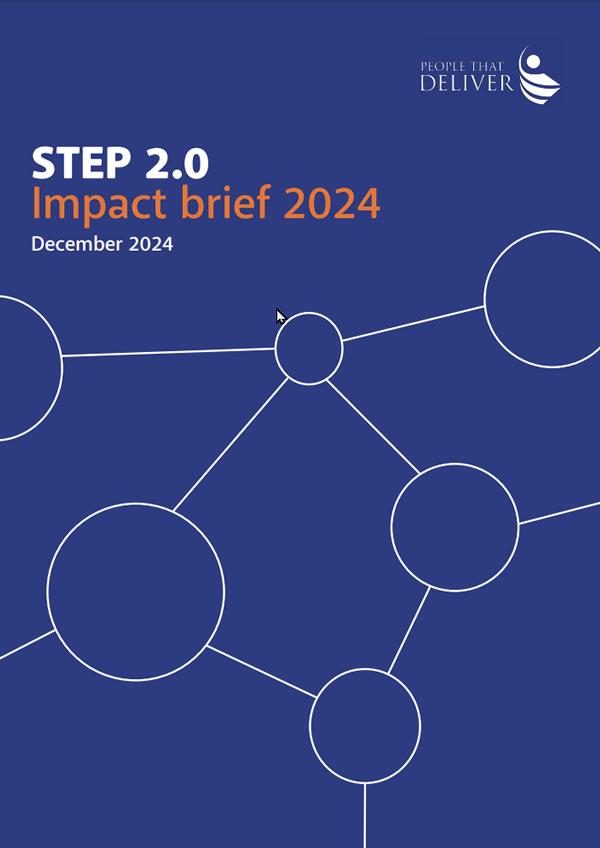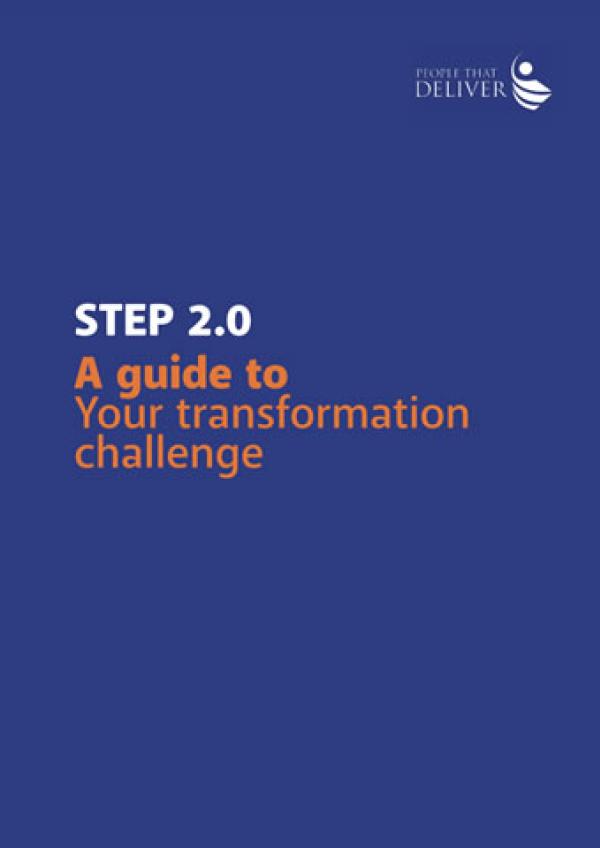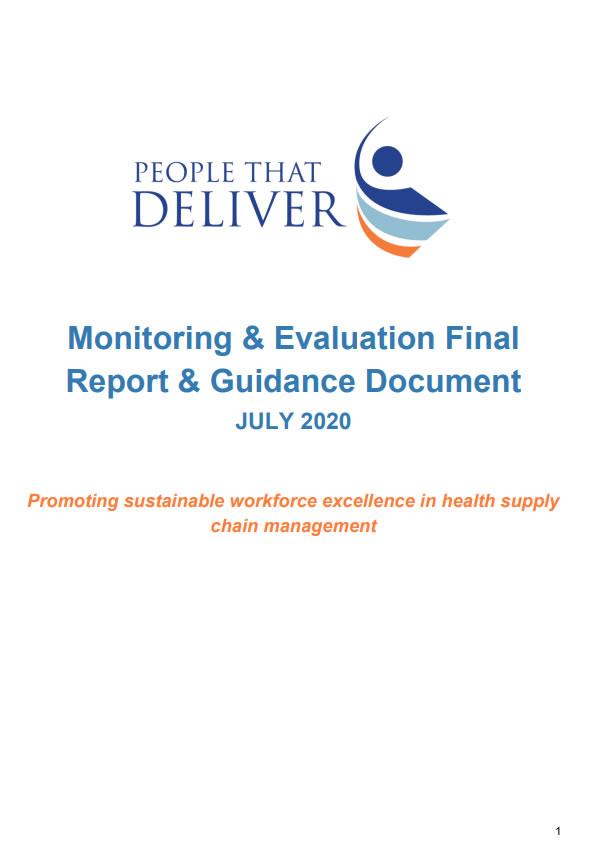VB: Resource
Resources
From STEP 2.0 to Next Step: Strategy and concept note. January 2026
For over a decade the Strategic Training Executive Programme (STEP) has demonstrated its ability to strengthen health supply chains, improve the leadership competencies of supply chain leaders and improve access to health products and services in low-and middle-income countries (LMICs). However, shifts in the global development financing
landscape and the reduction of traditional donor support for STEP risk jeopardising both the significant progress achieved and the investments made.
landscape and the reduction of traditional donor support for STEP risk jeopardising both the significant progress achieved and the investments made.
- Category: Report
- Country: Global
- Focus area: Leadership
- Language: English
- Year Published: 2026
STEP 2.0 Impact brief 2025
Despite 2025 turning out to be tumultuous for global health, and for STEP 2.0, the programme enjoyed one of its most successful years. STEP 2.0 was delivered six times in five countries to 140 health supply chain leaders.
- Category: Report
- Country: Global
- Focus area: Leadership
- Language: English
- Year Published: 2026
PtD Exchange: All you need to know
The PtD coalition has now transitioned to the PtD Exchange. Find out about the PtD Exchange and how you can get involved in the community movement.
- Category: Advocacy material
- Country:
- Focus area: Advocacy
- Language: English
- Year Published: 2025
STEP 2.0 M&E report
This report assesses the effectiveness, relevance and impact of the programme over a five-year period (2021–2025).
- Category:
- Country: Global
- Focus area: Evidence-based solutions
- Language: English
- Year Published: 2025
STEP 2.0 impact brief: January-June 2025
This STEP 2.0 impact brief looks back on the first half of 2025: Nigeria's all-women programme and vaccine success in Djibouti.
- Category: Report
- Country: Global
- Focus area: Evidence-based solutions
- Language: English
- Year Published: 2025
STEP 2.0 impact brief 2024
This STEP 2.0 impact brief looks back on 2024. Learn about a milestone year for the programme in which STEP 2.0 exploded on the scene in Asia.
- Category: Report
- Country: Global
- Focus area: Evidence-based solutions
- Language: English
- Year Published: 2024
Strategies for engaging youth in supply chain management careers
These documents are designed to support a wide range of stakeholders, including educators, employers, government bodies and industry associations, in implementing WBL programmes. Collaboration between these stakeholders is vital for ensuring that WBL programmes cover all stages of career development, from career exploration to in work development. Employers provide hands-on experience and mentoring, while educators help ensure that WBL activities align with academic goals and facilitate a smooth transition from classroom to career.
- Category: Tool
- Country: Global
- Focus area: Evidence-based solutions
- Language: English
- Year Published: 2024
STEP 2.0: A guide to Your transformation challenge
Your transformation challenge (YTC) lies at the core of STEP 2.0. This brief explains how countries should select the topic of their YTC, offers practical advice on how to do so and provides examples of how other countries have made best use of the programme.
- Category: Guidelines
- Country: Global
- Focus area: Leadership
- Language: English
- Year Published: 2024
Capitalising on momentum: PtD strategy 2024-2029
Capitalising on momentum sets out PtD’s five-year strategy (2024-2029). It defines the coalition’s three objectives over this period and points to four strategic enablers that will be crucial to achieving these.
- Category: Report
- Country:
- Focus area: Advocacy
- Language: English
- Year Published: 2024
PtD Theory of Action
People that Deliver (PtD)’s Theory of Action (ToA) explains how PtD will build on its achievements with a focus on influencing national-level HR for SCM. The ToA delineates the outcomes to which PtD contributes and the outputs of PtD’s activities. It provides a detailed blueprint for action, tracking progress and clarifying PtD’s role. It accompanies PtD’s logframe, which provides indicators, data sources, and assumptions. The monitoring and evaluation plan accompanies the ToA to ensure progress is tracked.
- Category: Other
- Country: Global
- Focus area: Evidence-based solutions
- Language: English

